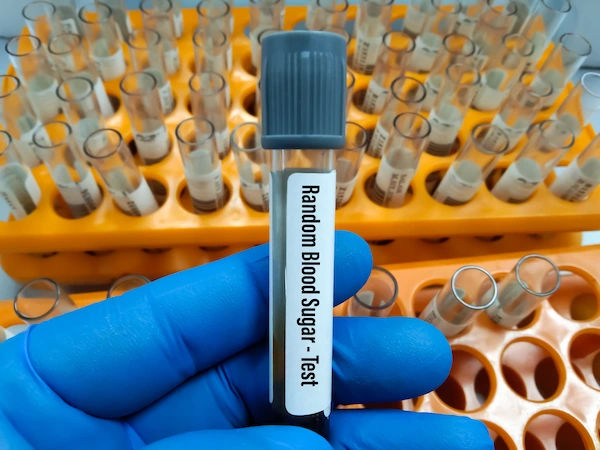Tests That Can Help Uncover The Cause Of Chronic Constipation
Struggling with chronic constipation? Discover the key diagnostic tests—like colonoscopy, thyroid function, and motility studies—that help uncover the root cause and guide effective treatment.

Written by Dr. Rohinipriyanka Pondugula
Reviewed by Dr. J T Hema Pratima MBBS
Last updated on 9th Sep, 2025
.webp?tr=q-80,f-webp,w-350,dpr-2,c-at_max 700w)
If you're dealing with infrequent bowel movements, bloating, or ongoing discomfort that doesn't improve, you're not alone. Chronic constipation is a widespread digestive concern that can affect daily comfort and overall well-being, particularly among adults over the age of 35. Unlike occasional constipation, chronic symptoms often signal that something more persistent may be affecting your digestive system.
Many people turn to fibre supplements, dietary changes, or over-the-counter remedies as a first step. While these options can be helpful for mild cases, ongoing constipation that doesn't respond to lifestyle adjustments may indicate an underlying medical issue. Continuing to treat only the symptoms without identifying the root cause can delay proper care and potentially overlook more serious concerns.
Fortunately, certain blood tests and other diagnostic evaluations can help uncover the reasons behind your symptoms. These tests allow your healthcare provider to check for hormonal imbalances, metabolic changes, nutritional deficiencies, or gastrointestinal conditions that may be contributing to constipation. This guide will walk you through the most important tests to consider and how they can support a more accurate diagnosis and effective treatment plan.
What Is Chronic Constipation?
Chronic constipation is defined as having fewer than three bowel movements per week or experiencing ongoing difficulty in passing stools for several weeks or more. Common signs include:
- Straining during bowel movements
- Hard, dry, or lumpy stools
- A sensation of incomplete emptying
- A feeling of obstruction in the rectum
- Requiring physical assistance to pass stool
These symptoms can affect daily comfort, energy levels, and overall digestive well-being.
Everyday Factors That Can Lead to Constipation
Constipation is often caused by everyday habits, especially those related to diet and lifestyle. Some of the most common contributors include:
- Low fibre intake: A diet lacking fibre can lead to hard, dry stools that are difficult to pass.
- Not drinking enough fluids: Dehydration can make stool more compact and harder to move through the digestive tract.
- Lack of physical activity: Being inactive can slow down your digestion and bowel movements.
- Certain medications: Drugs like opioids, iron supplements, some antidepressants, and antacids can reduce normal bowel function.
- Ignoring the urge to go: Regularly delaying bowel movements can disrupt your body’s natural rhythm.
- Changes in routine: Travel, stress, or shifts in your daily schedule can temporarily affect bowel habits.
While these factors are often the cause, persistent or severe constipation may signal a deeper issue. If lifestyle changes don’t improve your symptoms, it’s important to talk to your doctor. Blood tests and other evaluations can help uncover underlying medical conditions that may be contributing to ongoing constipation.
When to Consider Tests for Chronic Constipation?
If your constipation is a persistent problem, especially if it significantly impacts your daily life or comes with other concerning symptoms, it's time to talk to your doctor about further investigation, including specific tests. Consider these tests if you experience:
- Constipation that lasts for weeks or months: If your bowel movements are consistently infrequent or difficult, despite increasing fibre and fluids.
- New or worsening constipation: Especially if you're over 50 and experience a sudden change in bowel habits.
- Unexplained weight loss: Any sudden, unintentional weight loss alongside constipation should be investigated.
- Blood in your stool or rectal bleeding: These are red flag symptoms that require immediate medical attention.
- Severe abdominal pain or bloating: Persistent discomfort that doesn't resolve.
- Feeling generally unwell: Such as persistent fatigue, cold sensitivity, or unusual thirst, alongside your constipation.
If any of these sound familiar, discussing specific blood tests and other analyses with your doctor can help pinpoint the exact underlying cause and lead to a more effective, personalised treatment plan.
Key Tests to Help Identify the Cause of Chronic Constipation
When constipation becomes persistent and doesn't respond to dietary or lifestyle changes, it may be more than a simple digestive issue. In such cases, your doctor may recommend specific tests to evaluate deeper causes such as hormone imbalances, metabolic disorders, or gastrointestinal conditions. These tests help uncover why the digestive system isn't functioning normally and guide a more targeted treatment plan.
1. Thyroid Function Tests
Your thyroid plays a central role in regulating metabolism, including how efficiently your digestive system processes food.
- TSH (Thyroid-Stimulating Hormone): This is the primary test for evaluating thyroid function.
Elevated TSH levels may suggest hypothyroidism (underactive thyroid), a condition that slows bodily functions, including intestinal movement, leading to constipation. - Free T3 and Free T4: These additional tests assess levels of active thyroid hormones and offer a more complete picture of thyroid health.
Why it matters: An underactive thyroid can lead to sluggish bowel movements and may be a reversible cause of chronic constipation once identified and treated.
2. Blood Calcium Levels
Calcium is essential for nerve transmission and muscle contraction, including the muscles of the intestines.
- Serum Calcium: This test measures the level of calcium in the blood. Elevated calcium levels (hypercalcemia) can impair intestinal contractions, making it harder for stool to move through the colon.
Why it matters: High calcium levels may be caused by overactive parathyroid glands or other metabolic conditions that require medical management.
Check Your Calcium Levels Here
3. Blood Sugar and Diabetes Screening
High blood sugar can damage nerves throughout the body, including those that regulate digestive function.
- Fasting Blood Glucose and HbA1c: These tests assess blood sugar control and can help diagnose or monitor diabetes.
Why it matters: In people with poorly managed diabetes, nerve damage (autonomic neuropathy) may lead to slowed bowel motility, contributing to constipation.
4. Stool Analysis
A direct look at your digestive output can reveal important clues about the health of your gastrointestinal tract.
- Stool Examination: This test evaluates a sample of your stool for:
- Infections (such as bacteria, viruses, or parasites)
- Inflammatory markers (which may indicate inflammatory bowel disease)
- Malabsorption or digestive inefficiency (such as undigested fat)
- Occult blood (hidden blood, which could suggest ulcers, polyps, or other gastrointestinal conditions)
Why it matters: A stool analysis can detect infections, inflammation, or digestive abnormalities that contribute to constipation, especially when symptoms include bloating, irregular stool consistency, or abdominal discomfort.
These tests are typically considered alongside your medical history, physical exam, and symptom profile. Together, they help your healthcare provider build a clearer picture of what's triggering your constipation, whether it's hormonal, metabolic, structural, or related to gut function.
Identifying the true cause of chronic constipation is the first step toward a treatment plan that addresses the root issue and brings lasting relief.
Get These Tests To Get A Yourself Checked up
Get Tested Easily with Apollo 24|7
When your doctor recommends diagnostic tests to uncover the cause of your chronic constipation, choosing a trusted and convenient testing provider is paramount. Apollo 24|7 simplifies this process by offering a wide range of reliable lab tests. With accurate results delivered quickly, you and your doctor can work together to identify any underlying factors contributing to your digestive issues and plan the right treatment path.
Here’s why choosing Apollo 24|7 for your chronic constipation investigations is a smart step:
- Comprehensive Test Panels: Apollo 24|7 facilitates access to a broad spectrum of diagnostic tests directly relevant to chronic constipation, including crucial markers like thyroid function tests, Calcium levels, Blood Sugar tests, and comprehensive Stool Analysis.
- NABL-Accredited Labs: Tests are conducted in high-quality labs certified by the National Accreditation Board for Testing and Calibration Laboratories (NABL), ensuring trusted accuracy and reliability for your results.
- Home Sample Collection: No need to travel; get blood samples collected conveniently from your home at a time that suits you, offering privacy and comfort.
- Easy Online Booking: Book your tests effortlessly through the user-friendly Apollo 24|7 app or website with just a few clicks.
- Fast Digital Reports: Receive secure, detailed reports swiftly online, delivered directly to your device, ready for your doctor to review.
- Trusted Brand: Benefit from the trusted expertise and healthcare legacy of Apollo Hospitals Group, one of India’s most respected medical networks.
By choosing Apollo 24|7, you gain access to high-quality, reliable, and convenient diagnostic services that can significantly streamline your journey towards understanding and effectively managing your chronic constipation.
Conclusion
Chronic constipation is more than a daily inconvenience; it may be a sign of an underlying medical condition that requires proper evaluation. Addressing the symptoms without understanding the cause might bring only short-term relief and could delay effective treatment. Blood tests that assess thyroid function, calcium levels, and blood sugar, along with a stool analysis, can reveal important clues about possible hormonal, metabolic, or digestive issues. These tests help your doctor better understand what may be contributing to your symptoms.
Getting an accurate diagnosis is the first step toward long-term relief. With the right information, your healthcare provider can develop a personalised treatment plan to improve your digestive health and overall quality of life. If your constipation continues despite lifestyle changes, speak with your doctor about whether these tests could help identify the cause.






